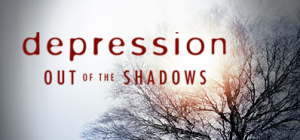Medical News Today reports on findings published in the journal Occupational Medicine that resuming work can actually aid recovery and help depressed employees.
However, the Society of Occupational Medicine warned that employers need to be sensitive and consider a range of interventions including changing an employees tasks and reducing hours to help people when they return to work. Line managers also play a key role as an early return to work is aided by line managers keeping in touch at least once every two weeks.
The study followed more than 500 people who were unable to work with depression from a variety of industries over the course of a year. A return to employment significantly promoted recovery. Importantly, it was the approach and flexibility of their employers that proved vital.
The study echoes the findings of Dame Carol Black’s Review ‘Working for a healthier tomorrow’ which recognized that for most people work is good both for their long-term health and for their family’s well-being. The review found that ill health was costing the country £100 billion a year – £40 billion of which was related to mental health.Â
Link to read article
Source: Medical News Today
In a study appearing in the new issue of ‘Brain Stimulation’, scientists report that a new form of electroconvulsive therapy (ECT) is just as effective as older forms in treating depression but without any of the cognitive side effects found in the older forms. In the NIMH-sponsored study, Dr. Harold Sackeim and colleagues from Columbia University randomly assigned 90 depressed patients to either right sided or bilateral ECT, using either a traditional electrical pulse or a newer “ultrabrief pulse”, and measured clinical response and cognitive side effects.
The study found that 73 % of the depressed subjects who received the ultrabrief pulse responded, compared with a 65% response from subjects who received the ‘gold standard’ bilateral older form. Importantly, the ultrabrief group had less severe cognitive side effects than the other group. “The use of an ultrabrief stimulus markedly reduces adverse cognitive effects and, when coupled with markedly suprathreshold right unilateral ECT, also preserves efficacy,” write Dr. Sackeim and colleagues. [continue reading…]
It’s a new frontier for psychiatric illness: Brain pacemakers that promise to act as antidepressants by changing how patients’ nerve circuitry fires. Associated Press, Washington, May 26th 2008 <
 Unravel the stereotypes surrounding depression, a pervasive disease that’s not “all in your head Out of the Shadows is a 90 minute PBS documentary about recognising, treating and researching depression. Produced by WGBH in Boston, “Depression: Out of the Shadows” features National Advisory Board Member, Andrew Solomon. The program is part of a PBS series on health, which includes additional episodes on cancer, heart disease and obesity.Â
Unravel the stereotypes surrounding depression, a pervasive disease that’s not “all in your head Out of the Shadows is a 90 minute PBS documentary about recognising, treating and researching depression. Produced by WGBH in Boston, “Depression: Out of the Shadows” features National Advisory Board Member, Andrew Solomon. The program is part of a PBS series on health, which includes additional episodes on cancer, heart disease and obesity.Â
Watch Depression: Out of the ShadowsÂ
Source: PBS

